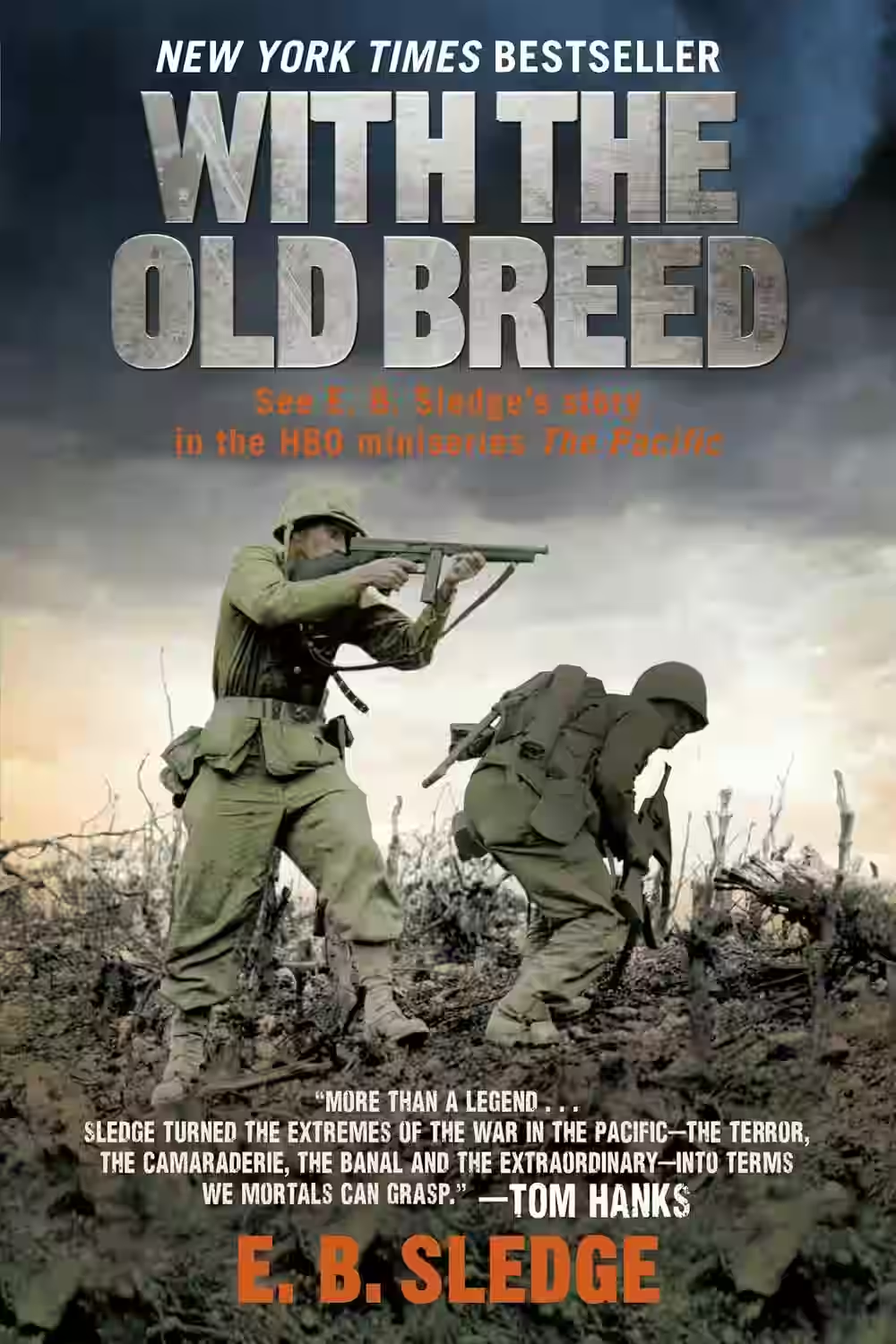
E.B. Sledge's 'With the Old Breed' is a poignant and harrowing personal account of his experiences as a Marine in the Pacific during World War II. Through vivid and visceral prose, Sledge brings to life the brutal realities of combat, showcasing the camaraderie, suffering, and resilience of the men he fought alongside. The book delves into the psychological toll of war, the challenges of survival in extreme conditions, and the moral dilemmas faced by soldiers. Sledge's raw and honest narrative provides a deeply human perspective on the horrors of war and the bonds formed in the crucible of conflict.
About E.B. Sledge
Eugene Bondurant Sledge was an American author and professor, born on November 4, 1923, in Mobile, Alabama. Sledge is best known for his acclaimed memoir 'With the Old Breed: At Peleliu and Okinawa,' which vividly recounts his experiences as a Marine in the Pacific Theater during World War II. His raw and honest depiction of the horrors of war has left an indelible mark on literature and is regarded as one of the most powerful war memoirs ever written. After the war, Sledge earned his Ph.D. in Biology and went on to teach at the University of Montevallo. E.B. Sledge passed away on March 3, 2001, leaving behind a legacy of profound storytelling and historical insight.
Similar Books

Becoming
In her memoir Becoming, Michelle Obama chronicles her journey from a working-class upbringing on Chicago's South Side to becoming the First Lady of the United States. She shares personal stories about her family, education, career, and the challenges of public life. The book offers an intimate look at her experiences, highlighting themes of identity, perseverance, and the importance of community. Obama's narrative is both inspiring and candid, providing readers with a deeper understanding of her life and the values that have shaped her.

Dress Your Family in Corduroy and Denim
In 'Dress Your Family in Corduroy and Denim', David Sedaris spins a collection of autobiographical essays that delve into the complexities of family dynamics with his signature humor and keen observations. Sedaris navigates the quirks and challenges of his eccentric family members, including his father's awkward attempts at bonding and his sister's unconventional behavior. Through witty storytelling, he explores themes of acceptance, belonging, and the often hilarious realities of everyday life. Amidst the laughter, Sedaris also touches on moments of vulnerability and introspection, creating a poignant and relatable reading experience.

What Do You Care What Other People Think?
Richard Feynman, Nobel laureate and icon, was a genius with an insatiable appetite for adventure and a remarkable talent for storytelling. This collection of short pieces and reminiscences reveals his diverse passions, from his appreciation of beauty to his college antics and the unique lessons imparted by his father. Feynman takes us behind the scenes of the Challenger investigation, vividly recounting his pivotal experiment that exposed the disaster's cause. He also shares the poignant story of meeting his beloved first wife, Arlene, and their brief, cherished time together. Infused with Feynman's characteristic curiosity and zest for life, these writings are both deeply moving and wonderfully humorous.

Surely You're Joking Mr Feynman
This warm and insightful portrait captures the wisdom, humor, and boundless curiosity of Nobel Prize-winning physicist Richard Feynman through intimate conversations with his friend Ralph Leighton. Beyond his groundbreaking theoretical work, Feynman was a man of adventure – an artist, safecracker, practical joker, and captivating storyteller. His life, fueled by high intelligence, unyielding curiosity, and healthy skepticism, was a series of remarkable experiences. These recorded conversations, transcribed with minimal alteration, offer a wise, funny, passionate, and utterly honest self-portrait of one of the 20th century's most brilliant and engaging minds.